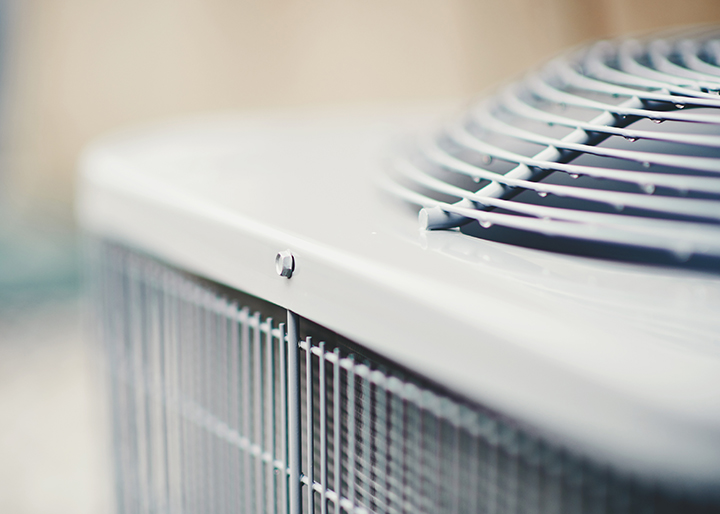An Ounce of Prevention — Best Practices

Preventive Maintenance Plans Can Save You Time, Money and Hassle
By Doug Ellis
As they build their portfolio of single-family rental (SFR) properties, owners and operators focus on key business strategies—to find quality renters, reduce tenant turn times and maximize their investment. But there is one step a lot of owners and operators often overlook: preventive maintenance.
Part of maximizing your SFR investment is ensuring that each of your properties is properly maintained. You do not want to waste your time or money, so be strategic and thoughtful in your approach. This means knowing what you have in each of your homes and investing in a preventive maintenance plan.
Here is what you need to know about getting started with SFR preventive maintenance plans.
Start with an Asset Database
Many SFR investors are lacking a simple tool to help them manage their properties effectively—a database that catalogs the fixed assets within each home they own. For example, how old is your HVAC unit? When was the water heater last serviced? Have there been roof repairs? An asset database is key to staying on top of property maintenance, and that is critical because missing key maintenance checks can lead to expensive capital investment repairs and replacements later.
Having a detailed record of your assets, as well as which services have been performed and when, can help you properly maintain the properties. This work ultimately helps prevent unnecessary costs and headaches. Plus, this data can enable predictive analytics so you can perform preventive, versus reactive, maintenance.
Build Preventive Maintenance Plans
With your asset database in place, you are able to build proactive preventive maintenance plans. Having an established maintenance plan in place can help reduce or prevent potential repairs and extend the lifespan of everything from HVAC units to plumbing fixtures. Plus, you can use the information to make decisions regarding capital investments.
So, what items should be included in your plan? To help extend the life of the assets within your SFR properties and capitalize on your investments, MCS’s investment property management experts recommend at least biannual maintenance checks that include:
HVAC systems
HVAC preventive maintenance helps you protect your SFR investments by avoiding extensive repair costs, early unit replacements and lost revenue from disruptive tenant relocations in the case of an outage. Schedule checks that follow ASHRAE standards for HVAC preventive maintenance with your SFR property services partner twice a year to keep your system in working order.
Each year MCS receives a large number of work orders due to backed-up condensate lines, an issue that can result in drywall damage, mold and remediation. With a proper preventive maintenance plan, HVAC condensate lines are “blown out” to help prevent back-up, keep the system operating efficiently and reduce larger repair expenses down the road.
Filter Changes
Beyond biannual checks for your overall HVAC system, regular filter changes should get their own checkmark on your preventive maintenance checklist. Replacing HVAC air filters is essential to extending the life of your units. But even though your tenants would experience cleaner air and near-term savings—the U.S. Department of Energy notes that replacing a dirty filter can reduce an A/C’s energy usage by 5% to 15% — it is a task you should not hand over to them. Instead, schedule regular filter changes with your SFR property services partner.
Roofing
Roofs and gutters may be the most frequently neglected maintenance item—until there is a problem. Avoid big repairs or emergencies through regular inspections and cleaning. Ensure your property services providers check for potentially loose or damaged shingles or tiles and clear gutters regularly to avoid standing water and reduce fire hazards.
Water Heaters
Extensively used assets like water heaters require checks to keep them working well—and longer. Because sediment can build and pollute the water in your water heaters, scheduling preventive maintenance checks every year to flush them can help keep them running as efficiently as possible.
Plumbing
Preventive plumbing maintenance can catch small issues before they turn into bigger ones. Have your property services provider regularly check all plumbing fixtures to ensure they are in working order and are sufficiently tightened or fastened. Drain cleans to avoid backups should also be on your checklist.
Landscaping
Do not neglect your SFR properties’ exteriors. From ongoing yard upkeep and fence repair to the winterization of sprinkler systems, addressing issues before they become problems via preventive maintenance maximizes your investment in multiple ways, including avoiding costly fines for HOA and other municipal violations.
Find a Partner to Help
Having a property services partner to oversee critical investment property maintenance and management tasks can help you keep your properties in peak condition. A good partner can help you build and maintain your fixed asset database, keep preventive maintenance schedules and serve as a maintenance expert for your entire SFR portfolio.
Beyond handling these critical needs, your property services partner also can help you understand and consider the bigger picture of your entire portfolio, so you can confidently decide when and where to make capital investments strategically.
We see a lot of owners forgo preventive maintenance, but that choice consistently backfires. You would not expect your car to keep running well—or for long—without regular oil changes and other maintenance. The same is true for your homes.














